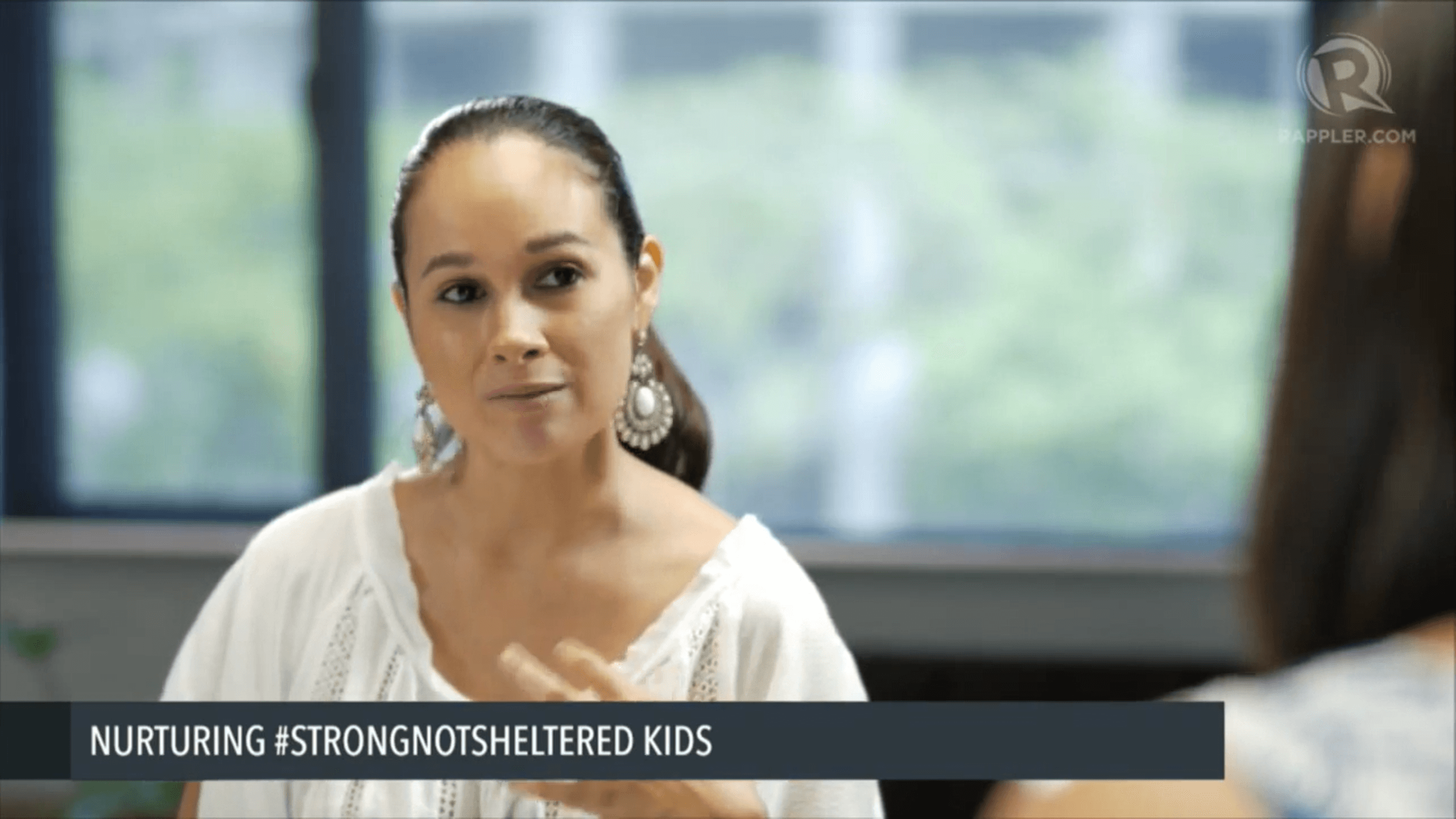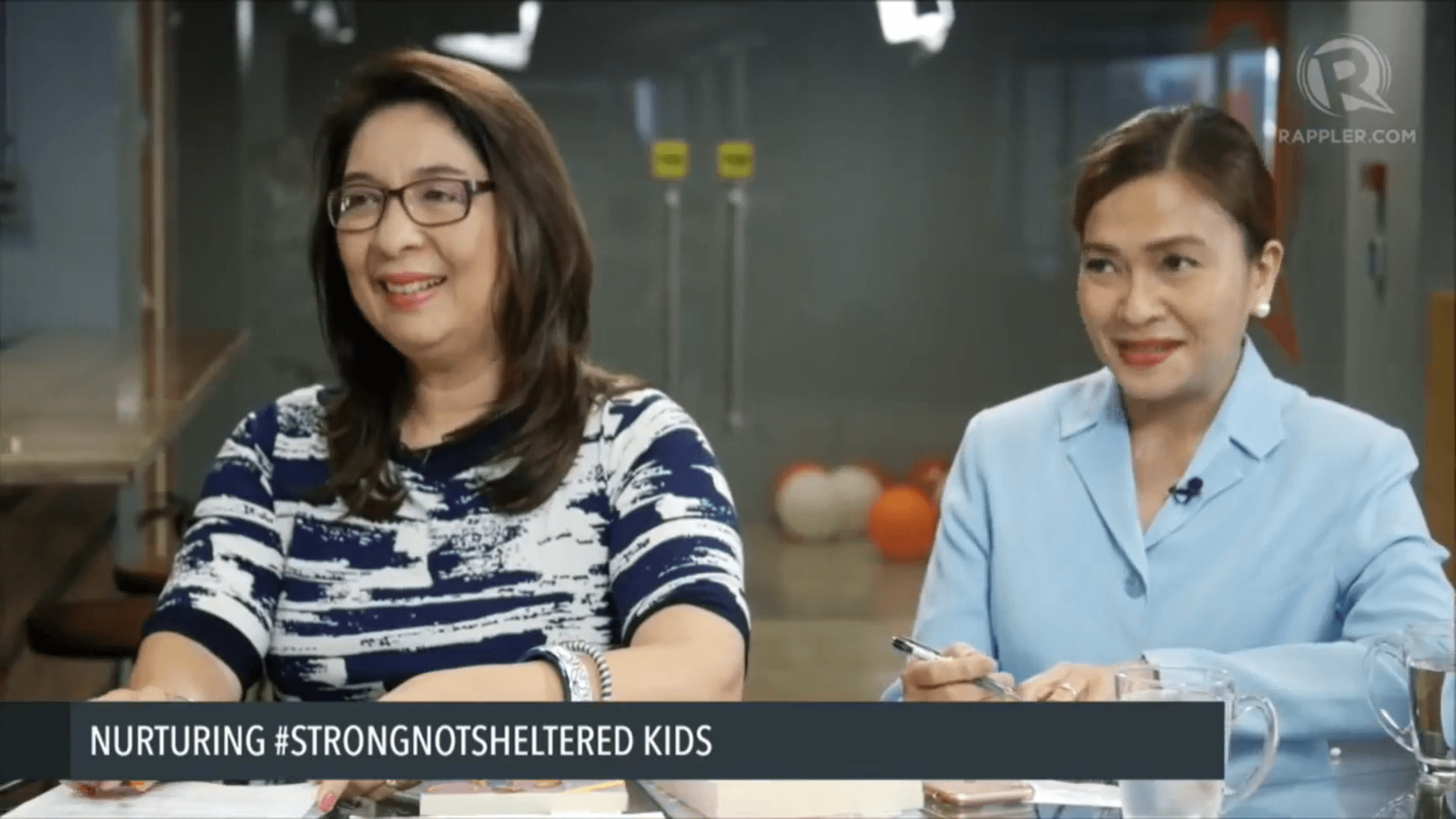SUMMARY
This is AI generated summarization, which may have errors. For context, always refer to the full article.

MANILA, Philippines – Flor Callo is a single mom. Since she started carrying her daughter in her womb, the burden of being both mother and father was on her.
The two now share a relationship that is at times more friendly than maternal. She thus never attempts to hide any difficulties from her child.
“I normally tell her all my experiences and struggles, so that in cases where she’d go through the same situation, she’d know how to handle it,” she shared.
Meanwhile, Bok Caspillo used to work at a Saudi Arabian oil company. Once, while back in the country, his daughter told him that she had a failing grade on a major college subject, which was going to cause a semester’s worth of delay.
As he wouldn’t be home again for months on end, he wanted to comfort her. But he knew he had to let her learn.
He told her that in life, you win some and you lose some. But the more challenges you experience, the more prepared you are for the next ones.
As parents like Flor and Bok, we’ve all asked: How do you raise resilient children?
Recently, Rappler hosted a roundtable in partnership with Anchor to discuss the topic of raising #StrongNotSheltered children. Part of the panel were Maribel Dionisio, parenting consultant; Ali Gui, child psychotherapist; Jo Ann Marie Verdadero-Salamat, seasoned nutritionist-dietitian; and Georgia Schulze-del Rosario, writer and mother of 4. Issa Litton, events host and herself a mother of 2, moderated the discussion.
Parenting in the digital age
The challenges that come with parenting have only found more company in the digital age. Is it bad to let your kids create a Facebook account? At what age is it acceptable for them to get their own mobile devices or tablets? How do you make sure they’re not encountering any malicious content online?
There are too many dangerous elements out there. Georgia summed up every parent’s fear when she said: “That’s not how I grew up, so I don’t know how they’ll turn out. I can’t help wondering, are there any mistakes happening right now that are irreparable for them?”
Add to this the pressure of creating a perfect façade on social media, plus the pressure kids feel as they’re transitioning into adults themselves.
And no parent wants to see their kid struggling. Your main instinct will always be to guide your child. It’s why a lot of parents tend to make the mistake of taking complete charge of their kid’s affairs, which range from homework to playground bullying.
Various parenting styles were mentioned during the discussion. Helicopter parenting means hovering anxiously over the child’s every move, while lawnmower parenting is paving the way for the child so their life remains free of obstructions.

But as Issa said, “Buhay din yan ng anak mo (that’s your child’s life), so let them go. Guiding them isn’t necessarily living their life for them.”
Besides, challenges are unavoidable. Shielding them now won’t help once you’re gone and they’re left to do things on their own. Failure gives them the opportunity to realize the ways in which they can improve.
It also keeps them grounded. Ali said that not exposing them to challenges and espousing perfection teaches children to live in a fantasy world.
Maribel added that kids should deal with the consequences of their actions themselves. “Ang parents, magaling tayo na tagasalo. We’re there to catch them, to fix it for them. But they’ll never learn, and this is one way of weakening them.”
These challenges can be as simple as making them take public transportation to school, as Jo Ann does. She believes that it will help her daughter grow independent and aware of the world outside the comfortable confines of a private car.
Setting them free to face life head-on is the best way you can help them. It’s also important to let kids experience pain.

“It’s from their own wounds that they’ll learn how to care for themselves, how resilient they can be, and how to not hurt other people as well,” Ali said.
Letting them grow on their own
So how can parents guide their children, while letting them experience life’s challenges firsthand?
Parents can start by providing proper nutrition, which gives kids the physical strength for whatever problems they may face. For growing kids, whole milk is essential to nourishment.

Jo Ann advised parents to read the ingredients list thoroughly. “Knowing what kind of food we give our children is very important. That way, you’re still with them even if you’re not physically beside them.”
Next, create a connection with each child. Get to know their strengths and weaknesses.
Then process the situation calmly. Step back, stop yourself from taking over, and think how your child can handle it.
But how do you do this without overreaching?
“It doesn’t mean being with them 24 hours a day. Letting them go means I know that I have already instilled a good foundation in them, and that they are smart enough to do what is best for them. We are supposed to guide, but not do everything for them,” Ali explained.
When it comes to homework, Maribel said it’s best to supervise them up until third grade. From there, slowly let go and see what they can do their own.
The audience also weighed in on the issue, offering insight and advice:



@rapplerdotcom Being a working mom helps, kids realize work is a part of life so everyone should carry their own weight #StrongNotSheltered
— Tootsy Angara (@tootsyangara) March 24, 2017
Parent as child, child as parent
The basic idea of parenting is the elder guides its offspring. But it’s not always the case.
The parent-child relationship can go both ways – you can learn life lessons from your child too.
Bok admitted it was hard to let go, but his daughter now boards away from home. Her thirst for independence inspired him to embrace new experiences.
It’s also perfectly fine if your child sees you struggling. Flor’s first instinct is to protect her daughter. But since they communicate openly, solving problems often becomes a collaborative effort.
“It’s not always them needing us. Let them be the one to give us the solution. That’s how they form their values, their confidence,” Ali said. – Rappler.com
Add a comment
How does this make you feel?

There are no comments yet. Add your comment to start the conversation.